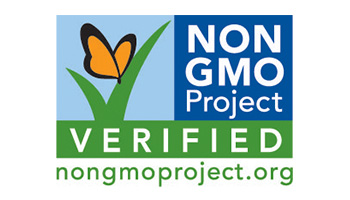"We have the right to know what is in our food."
What are GMOs (Genetically Modified Organisms)?
Genetically Modified Organisms, called GMOs, are plants or animals with cells that scientists have altered genetically. They do this by inserting a gene from one organism into another similar organism—or between non-related species. The idea is to develop new plants or animals with specific desired traits and then grow them as food.
While GMO proponents say their goal is to increase nutritional benefits or productivity, the two main traits that have been added to date are herbicide tolerance and the ability of the plant to produce its own pesticide. These results have no health benefits, only economic benefits to the companies that produce them, at the cost of significant negative consequences.
Genetic modification produces results that otherwise would not appear in nature. Down to Earth is opposed to the development of products containing GMOs because we believe they may pose health, safety, and other potential risks that far outweigh the purported benefits.

Everyone has a right to know what is in their food and deserves access to non-GMO choices. One of the ways to avoid GMOs is to choose foods that have the USDA Organic seal, which certifies that GMO seeds were not used in production. Another option is to look for the Non-GMO Project Verified Seal issued by the Non-GMO Project.
For details check out the links below to a wide variety of related articles.
At Down to Earth we strive to sell products that are good for you and good for the environment!
We give priority to certified organic and Non-GMO Project Verified products in our purchasing decisions. We:
- Avoid purchasing any new food products with major ingredients that may contain GMOs
- Do not sell single ingredient GMO foods (including papaya, corn, soy, canola, or sugar produced from GMO sugar beets)
- Require that non-GMO claims be verified by an approved third party such as the Non-GMO Project. We actively encourage our suppliers to become Non-GMO Project Verified
- Actively support organic and sustainable farming methods
- Support customer’s “right-to- know,” including labeling of products that contain GMOs
- Educate and communicate about the economic, social, health, and environmental impacts of GMOs
Learn more about GMOs, why you should be concerned, and what you can do about it by clicking the links below.

